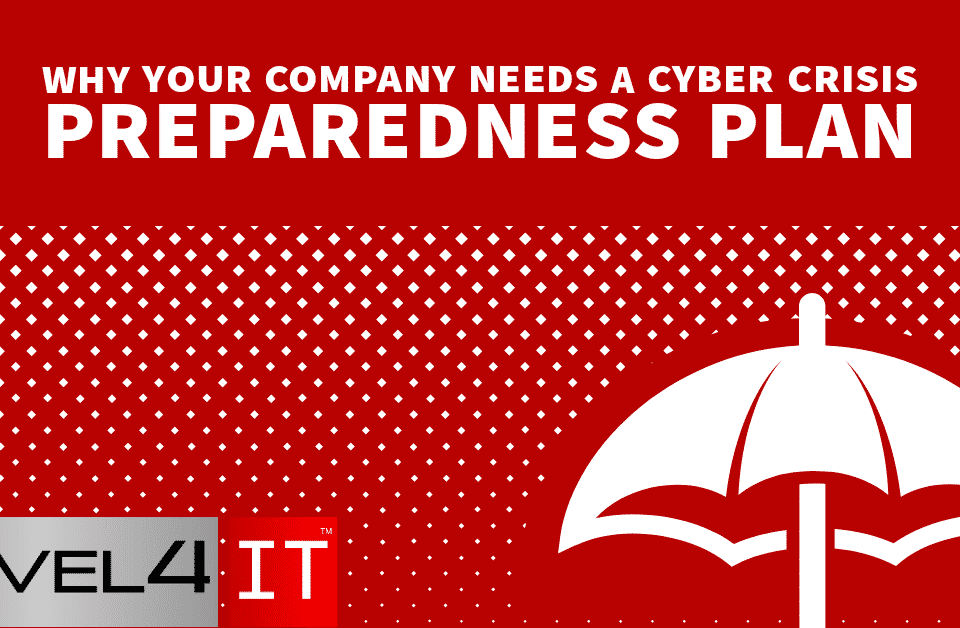
Protecting and Accessing your Digital Data When You’re Gone
January 11, 2019
Cyber Threats from 2018
April 2, 2019Employee Devices Pose Risks You May Not Know About
As a small business owner, you take careful and precise precautions to protect your most valuable assets. You put up security cameras if you have a storefront or showroom and you may even invest in robust security software to protect your company’s computers and software. While you’re managing these potential dangers and trying to secure what’s most important to your business, your employees could be putting everything at risk on their own personal devices.
If you employ a byod policy, allowing employees to use their own devices to conduct business, it’s a great way to cut costs as you aren’t responsible for issuing phones and computers to all employees. The increased level of convenience and productivity is also appealing to all business owners because employees can have access anytime, anywhere. While that byod policy comes with a multitude of benefits for your small business, it can also diminish all your hard work when it comes to security.
These days, it’s common for employees to put their company email on their phone and other software or apps that allow them to stay connected no matter where they are, but as the business owner, you need to pay attention to underlying risks that could grow into a much larger cybersecurity problem.
Employee accessibility can cause issues for your small business
Employees carry their devices everywhere they go, no matter if it’s during business or personal hours. An employee connecting to an unsecured Wi-Fi network at a local café on a Saturday morning could make your business data susceptible to hackers. Unbeknownst to the employee, they are giving cybercriminals free access to everything.
When you allow employees to conduct business on their personal devices, you are entrusting them to maintain the highest level of security all on their own. Those employees could fail to update their operating system regularly, which means necessary security patches that come with each update may not even make it to their device. Having an outdated anti-malware ore firewall protection leaves the device, and the entire company’s data, wide open to malicious threats.
Whether on a mobile device or implementing a browser extension, there are thousands of apps uploaded each day that could include malware. While sources like the Apple App Store and Google Play are continually checking for malware, some apps slip through the cracks and your employee could inadvertently introduce malware onto their device through an illegitimate app. This malware affects more than just the employee’s device, it can grab all the company’s data, cloud-apps and even spread to other connected devices.
The most common area where employees falter is introducing robust password protection protocols to their personal devices. Without the most basic level of protection, employees are leaving their own data and their company’s data open for the taking. Some people could carry passwords written down in a note-taking app, or they could use the same password for everything or even fail to create a password for their device at all, making it even easier for cybercriminals to access important data.
Steps you can take to prevent or mitigate these risks
The most important thing you can do to lessen or avert cybersecurity risks is by educating your employees. Often, people don’t even know that their actions can be devastating to the company they work for. That’s why investing in programs that teach employees how to recognize potential threats and how to secure their device best can make all the difference for your business.
You may already have a device policy, but it’s time you start enforcing it. Set established ground rules for how employees can use their devices and require a password on all devices being used for work. Throughout the education process, all employees should be made aware that the activities they do in their own personal time can impact the entire business. Encourage them to connect only to secure Wi-Fi networks that they know and to read all app reviews before downloading to their device.
There are other steps small businesses can take to make sure employee’s devices are secure, such as introducing a device management software to identify risks or ensuring that all downloaded data is fully encrypted. You can also offer a VPN (Virtual Private Network) for all employees to use while they are away from the office.
In the hyperconnected world we live in, it is cost-effective and convenient to allow employees to use their own devices to conduct business, but it’s crucial that you don’t sacrifice security along the way. Proper education and protocols in place can help mitigate unknown threats that are lurking beneath the surface. If you have concerns about the security of your small business or want to look into targeted steps you can take to mitigate risks, the security professionals at Level 4 IT can help ensure that your business is protected.




